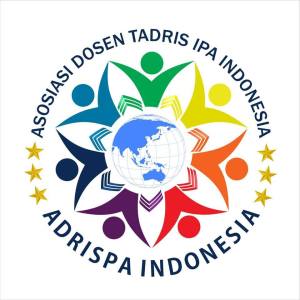META-ANALYSIS OF VARIOUS COLLABORATIVE LEARNING BACKGROUND IN NATURAL SCIENCE TEACHING AND LEARNING PROCESS
DOI:
https://doi.org/10.21154/insecta.v2i2.3474Keywords:
Background, Collaborative Learning, Meta AnalysisAbstract
This meta-analysis study aims to determine the background of collaborative learning in science learning. The sample used was purposive sampling related to research on the background of collaborative learning in natural science teaching and learning processwith seventeen research samples. Six classes actions will be used as samples to find the background for the application of collaborative learning in science learning, while the other 11 plus 6 existing classroom action studies were used as supporting materials for the background. Results based on a meta-analysis study, it was found that 29.40% of collaborative learning was motivated by the lack of students' social skills. In addition, there were also 6 problems that underlie related or emerging studies, including the lack of absorption and mastery of student learning, passive students, low student motivation, lack of innovative learning strategies, lack of innovative learning media, lack of social skills of students, low critical thinking skills of students.
References
Adi W. Gunawan. (2006). Genius Learning Strategy. (Jakarta: Gramedia Pustaka Utama.hlm 126-127.
Adi.W.Gunawan. Genius Learning Strategy. (2007). Jakarta: PT Gramedia Pustaka Utama, hlm. 173.
Adi W. Gunawan, Op Cit., hlm. 98.
Anita Lie. (2007). Cooperative Learning, Mempratekkan Cooperative Learning di Ruang-Ruang Kelas. Jakarta:Grasindo.
Asrori. (2003). Jurnal Collaborative Teamwork Learning. Tahun Ke-9, No. 040: 112 .
Ardhana, W. (1997). Pandangan Konstruktivistik tentang Pemecahan Masalah Belajar. Makalah Seminar TEP PPS IKIP Malang.
Barkley, F Elizabeth. (2007). Collaborative Learning Techniques. Jossey-Bass. A Wiley Imprint.
Cheader Al-wasilah, (2007) Pokoknya Menulis, (Bandung: PT Kiblat Buku Utama) hal. 25.
Daniel Muijs & David Reynolds, (2008) Effective Teaching Teori dan Aplikasi (Yogyakarta: Pustaka Pelajar), hlm. 89.
Danic M,Orchovacki T,Stapic Z. (2000). Introducing CaCM: toward new students collaboration model. Pavlinska: Faculty of Organization and Informatics University of Zagreb.
Degeng N.S. (1999). Mencari Paradigma Baru Pemecahan Masalah Belajar dari Keteraturan Menuju Kesemrawutan. Pidato Pengukuhan Guru Besar IKIP Malang.
Depdiknas. (2015). Standar Nasioanal Pendidikan.
Eijl, P. J. V. A. N., Pilot, A. & Voogd, P. D. E. (2005). Effects of Collaborative and Individual Learning in a Blended learning Environment. Educational and Information Technologies. Springer. 10(1-2): 51”“ 65.
Elizabeth B Hurlock, Psikologi Perkembangan (Jakarta: Erlangga) Edisi 5, hal 122.
Elizabeth E. Barkley, K. Patricia Cross, Clarie Howell Major, (2004) Collaborative Learning Techniques (Bandung: Penerbit Nusa Media) hal 04 cet III.
Elizabeth E. Barkley, Dkk, (2014) Collaborative Learning Techniques , op. Cit., hal 8.
Facione, PA. (2010). Critical Thinking: What It Is and Why It Counts. Insight Assesment. 1-24.
Hill,Susan & Tim. (1996). The Collaborative Classroom, A guide to co-operative learning. Armadale: Eleanor Curtain Publishing.
Ibid., hal. 9
John M. (1991). Metode Pembelajaran Kolaboratif.
Johnsons. (1974). Unsur Dasar Pembelajaran Kolaboratif.
Kaendler, C., Wiedmann, M., Rummel, N. & Spada, H. (2014). Teacher Competencies for The Implementation of Collaborative Learning in The Classroom: a Framework and Research Review. Educ Psychol Rev., 27(3): 505-536.
Merriyana, R. (2006). Meta-analisis Penelitian Alternatif Bagi Guru. 5(6), 102-106.
Mahmudatussa’adah, Ai. (2011). Pendekatan Inkuiri-Kontekstual Berbasis Teknologi Informasi Untuk Meningkatkan Keterampilan Berfikir Kritis Mahasiswa. Dipublikasikan oleh Universitas Pendidikan Indonesia dalam INVOTEC, Volume VII, No. 2, Agustus 2011: 115 ”“ 130.
Martinis Yamin, (2011) Paradigma Baru Pembelajaran (Jambi: Gaung Persada Press), hlm. 25.
Morgi, Dayana, (2015) Pengaruh Aktivitas Pembelajaran Dengan Metode Collaborative Learning Terhadap Perkembangan Sosial Emosional Anak, Jurnal Penelitian Universitas Lampung,. Hal 7.
Nana Sudjana, (2009) Penilaian Hasil Proses Belajar Mengaja, (PT. Remaja Rosdakarya), hlm. 32.
Syaiful Djamarah, Prestasi Belajar dan Kompetensi Guru (Sinar Baru Algensindo, 1994), hlm. 15.
Setiadi EM, Hakam KA & Effendi R. (2013). Ilmu Sosial Budaya Dasar. Jakarta: Kencana.
Styron, R. A. (2014). Critical Thinking and Collaboration: A Strategy to Enhance Student Learning. Systemics Cybernetics dnd Information, 12(7): 25-30.
Sujarwanto, Imam. (2012). Interaksi Sosial Antar Umat Beragama (Studi Kasus pada Masyarakat Karangmalang Kedungbanteng Kabupaten Tegal). Journal of Educational Social Studies. Volume 1, Nomor 2: 62.
Suparno, Paul. (2008). Riset Tindakan untuk Pendidikan. Jakarta: PT Gramedia Widia Sarana Indonesia.
Suyatno, (2009) Menjelajah Pembelajaran Inovatif (Surabaya: Masmedia Buana Pustaka), hlm. 4.








